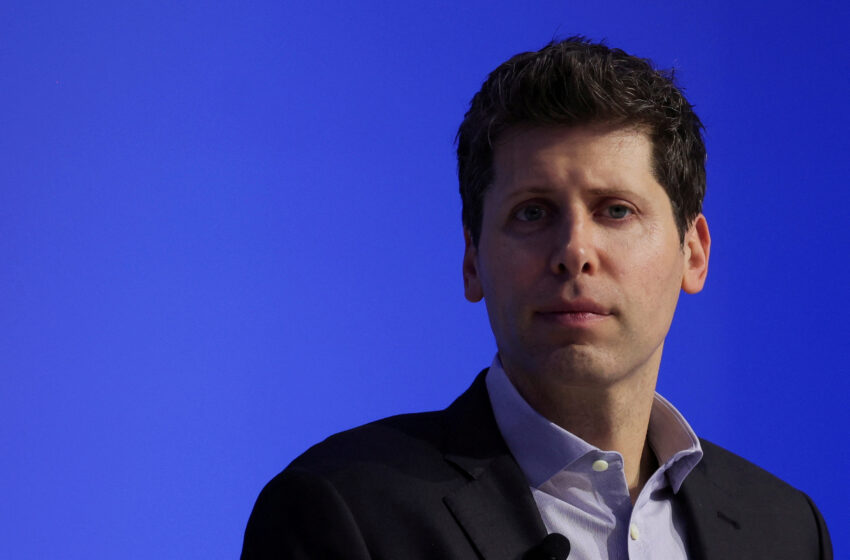
OpenAI Co-Founder Sam Altman Returns to His Startup
A sigh of relief echoed through the tech world on Wednesday morning as it became clear that OpenAI co-founder Sam Altman will be returning to his startup. Efforts are already underway by the firm’s billionaire backers—including Tiger Global, Sequoia Capital, and Thrive Capital—to reinstate him. But that outcome may wind up further consolidating the power of the largest technology companies and lessening accountability for AI.
Microsoft’s Satya Nadella
Nadella is widely viewed as the one responsible for turning around Microsoft, a companSam Altmany that languished during his predecessor Steve Ballmer’s 14 years at the helm and missed the mobile, search, social media, and cloud waves. He has made the case that the company is still on a growth trajectory, even in a world where many investors believe tech giants are on a decline.
During last week’s leadership chaos at OpenAI, Nadella stuck with Altman and offered him a position at Microsoft—an offer that gives him leverage in his battle to regain control of the company. It also cements Microsoft as an essential partner for the pioneering AI company.
It’s important to remember that if the board at OpenAI is able to successfully reclaim their position, the company would be a nonprofit with a capped-profit subsidiary—a novel corporate structure that limits investors’ returns but retains the mission of the organization and lets its boards govern activities including hiring and firing employees. Unlike some other tech founders who keep control of their companies through dual-class stock structures, the board at the non-profit will have the power to fire the capped-profit’s CEO.
Microsoft’s Thrive Capital
As the world’s leading spokesperson for artificial intelligence, Altman had an unusual source of leverage in this saga: He was already the sole director of the nonprofit that runs the corporate entity that develops ChatGPT and other AI software. That structure was designed to let the company raise the tens or even hundreds of billions needed to build true “artificial general intelligence,” while also preventing capitalist forces, particularly a single tech giant, from dominating AI development.
It now looks like that thin reed is about to go up in flames. If Microsoft can persuade Altman and other key employees to move to its own AI division, it could effectively destroy the hybrid model that the company created.
Efforts are underway by a number of OpenAI investors to push for Altman’s reinstatement as CEO, sources close to the matter said. Microsoft, Tiger Global and venture firm Thrive Capital are among those trying to reinstate him, the people said, asking not to be named because the talks are confidential. Thrive cashed in on its investments in the developer software platform GitHub, which Microsoft bought last year.
Microsoft’s Sequoia Capital
One of the most prominent venture capital firms in the world, Sequoia Capital invests in startups with dynamic ideas in technology. Their stage agnostic approach and policy of cutting losses allows them to work with the most promising companies from around the world. Their investments in over 1500 startups have spawned businesses that control $1.4 trillion of combined stock market value.
Sequoia partners are largely immigrants who think of themselves as “pioneers” in Silicon Valley’s new land. They rub shoulders in spartan offices on Sand Hill Road with partners from Wales (Moritz), South Africa (Botha), Taipei (Leone), and old-line parts of the northeastern United States who curse like the wind to get their point across.
Unlike Wall Street’s activist investors who agitate for big shakeups that could rocket stock prices upward in a day, Sequoia partners help their companies relentlessly with the little things that won’t ever make a headline. When Stripe cofounder John Collison wanted to practice his pitch for a big East Coast financial firm, Leone took him to dinner twice and helped him with his presentation.
Microsoft’s Tiger Global
Tiger Global Management may have a stellar track record, but not everyone is on board. Some LPs are still stung by the fund’s recent volatility, and they worry it could be a sign that tech ventures are getting overvalued, leading to future disappointments.
That view isn’t supported by the data, which suggests that private tech companies are still being undervalued by investors. Indeed, even as the IPO market has slowed, the number of companies raising funds with billion-dollar valuations is soaring.
During its early days, many of Tiger’s deals earned it the label “overpayer.” But, hindsight suggests the fund was right to pay more than market rate and beat out competitors in the process.
Among other things, the fund is big on seeding. In addition to its existing portfolio, it invests in a series of seed-stage funds that are open to the general public. This is something a lot of larger funds don’t do, because doing so can make them too competitive with other seed-stage investors, such as a16z and Sequoia Capital. That hasn’t stopped Tiger from investing more than $1 billion in the strategy.
Microsoft’s Y Combinator
Altman has long articulated a bold vision for the future of technology. From co-founding Y Combinator to leading OpenAI, his perspective on innovation and the future of AI has been influential in shaping industry narratives. His commitment to fostering startups and ensuring that AI research aligns with broader societal goals has also been essential.
The drama over Altman’s departure from OpenAI follows a twist of events that has left many current and former employees stunned. Just a few days ago, it seemed as though he would be the company’s long-term chief executive.
According to Greg Brockman, the president of OpenAI who was fired along with Altman, Sutskever texted Altman that Thursday night asking him to join a Google Meet at noon on Friday, where he was informed that the board had decided to fire him. The next day, the board released a statement saying that Altman had been removed because he had not been “consistently candid in his communications with the board.”







